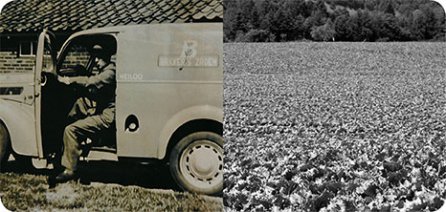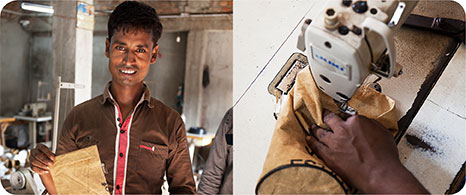About Baza
Baza Seeds Holland has been active in the garden seed market for more than 70 years.
In 1947 Grandpa Jacob Bakker established himself as a specialized seed grower at the Westerweg in Heiloo. The company was founded as Bakker’s Zaadteelt & Zaadhandel, later “Baza” for short. The sandy soils behind the Kennemerland dune area were ideal for the cultivation of special types of lettuce. Bakker lamb’s lettuce seeds in particular were highly appreciated and found their way to many growers in the Netherlands, Belgium and Germany.

Jacob and Neeltje Bakker had 9 children, all of whom were more or less active in the family business, but the youngest son Cor made his life’s work to make Baza a real company. Over the years, the demand for more variety in the seed supply grew and attention from seed cultivation shifted more and more to the trade in a wide collection of flower, vegetable and herb seeds.Because of this larger range, Baza became increasingly known among hobby gardeners. Especially in Dutch supermarkets and DIY stores. The handy and beautifully designed store presentations proved to be a big impulse sale to many retailers every year.
Retailers also increasingly appealed to the creativity that appeared to exist at Baza. Healthy food, the demand for BIO seeds and “grow your own” became an increasingly important theme in the market; all kinds of interesting questions were asked to help us think about green retail campaigns and loyalty programs. In recent years, we have worked with various retailers to create surprising campaigns, often in private label design. In recent years, our team has also been strengthened in this process with designers and product developers.
Baza is now active in most European countries, and even beyond. During our search for special seeds and unique cultivation methods, we came across a small factory in India with which we have started a joint venture. We founded a unique sustainability project in the border area with Bangladesh and West Bengal. Used big bags from tea plantations, which were previously incinerated after processing the harvest, are now collected for Baza and reused. Collectors, or “ragpickers”, receive a decent reward for collecting these bags. Then the collected materials are recycled into a new kind of grow pots; we call them “Baza Ragpots”. On this link you can see a documentary how the recycling process works.

Over the past 3 years, we have collected more than 600,000 tea big-bags in the region and processed them into unique “Baza Ragpots”. Our people work there with great dedication and enthusiasm. Crafting skilled hands on solid Yukis (sewing machines) create very cool Baza grow bags! It is actually a higher form of recycling, it is better to call it “Upcycling”; We upgrade used packaging material to decorative and useful grow bags. And in the process, we contribute to a better and cleaner world!








